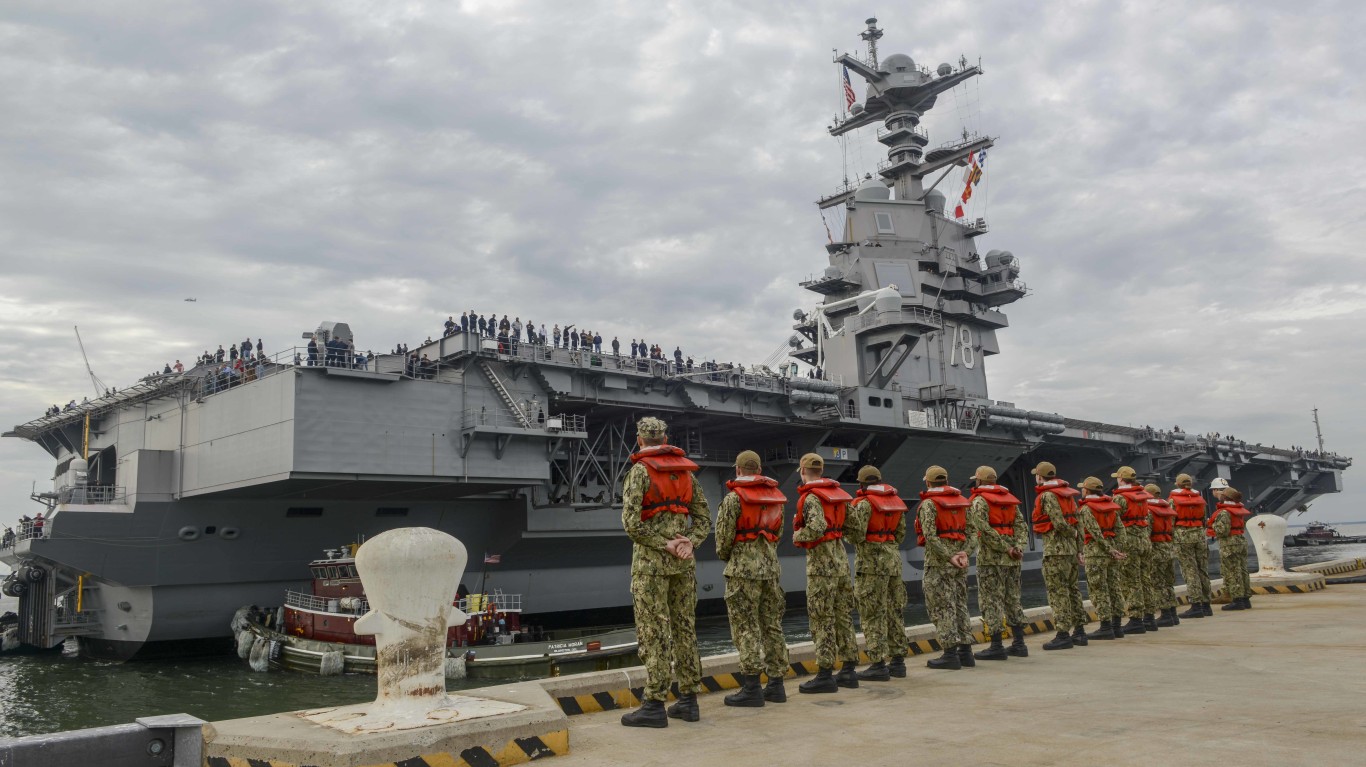
China has the world’s largest naval fleet by numbers, followed by Russia and North Korea, with the United States coming in fourth. Numbers do not tell the whole story, however, as the size, quality, and capabilities of naval vessels can vary widely. When measured by mass, the U.S. naval fleet dominates all other nations with its immense and powerful ships. In fact, the U.S. fleet has more mass than the next 13 navies combined. (This is the world’s largest navy.)
To determine the largest vessels in the U.S. Navy, 24/7 Wall St. reviewed a list of active U.S. naval vessel classes from Military Factory, an online database of military vehicles, aircraft, naval vessels, and more, as well as other sources, including Military-Today. We ranked the U.S. Navy’s ships according to their total displacement – the volume of water displaced by the vessel converted to weight in tons. (Draft is the necessary depth of water a vessel needs – it is the vertical distance, in feet, between the waterline and the lowest point of the hull.)
Two similarly-sized aircraft carriers – the Nimitz-class and Ford-class supercarriers – are not only the largest navy vessels in the U.S. Navy, but also the largest warships in the world. The U.S. fleet of Nimitz nuclear-powered carriers, with a length of about three football fields, entered service in 1975. The 10 ships can hold 60 aircraft each and were designed for a 50-year service life. The carrier’s displacement of 114,000 tons is the largest.
As the Nimitz carriers’ time in action winds down, they are being replaced by the new Ford-class carriers, which can hold 75 aircraft apiece and are equipped with improved combat capabilities. Though the Ford carriers measure about the same in terms of length and width, their overall displacement is 112,000 tons.
Other large U.S. Navy ships include two classes of amphibious assault ships and a class of amphibious transport dock, all of which are designed to carry helicopters and to deliver Marines and their equipment to shore. (These are the 19 ships and submarines in the U.S. naval fleet.)
Click here to see the largest ships in the US Navy fleet.
Click here to see our detailed methodology.
19. Cyclone-class patrol ship
> Total displacement: 335 tons
> Dimensions: Length: 175.0 ft., Width: 25.0 ft., Draft: 7.5 ft.
> Number in US fleet: 10
> Crew: 30
> Year entered service: 1983
[in-text-ad]
18. Avenger-class mine countermeasures ship
> Total displacement: 1,367 tons
> Dimensions: Length: 224.0 ft., Width: 39.0 ft., Draft: 13.0 ft.
> Number in US fleet: 8
> Crew: 81
> Year entered service: 2017
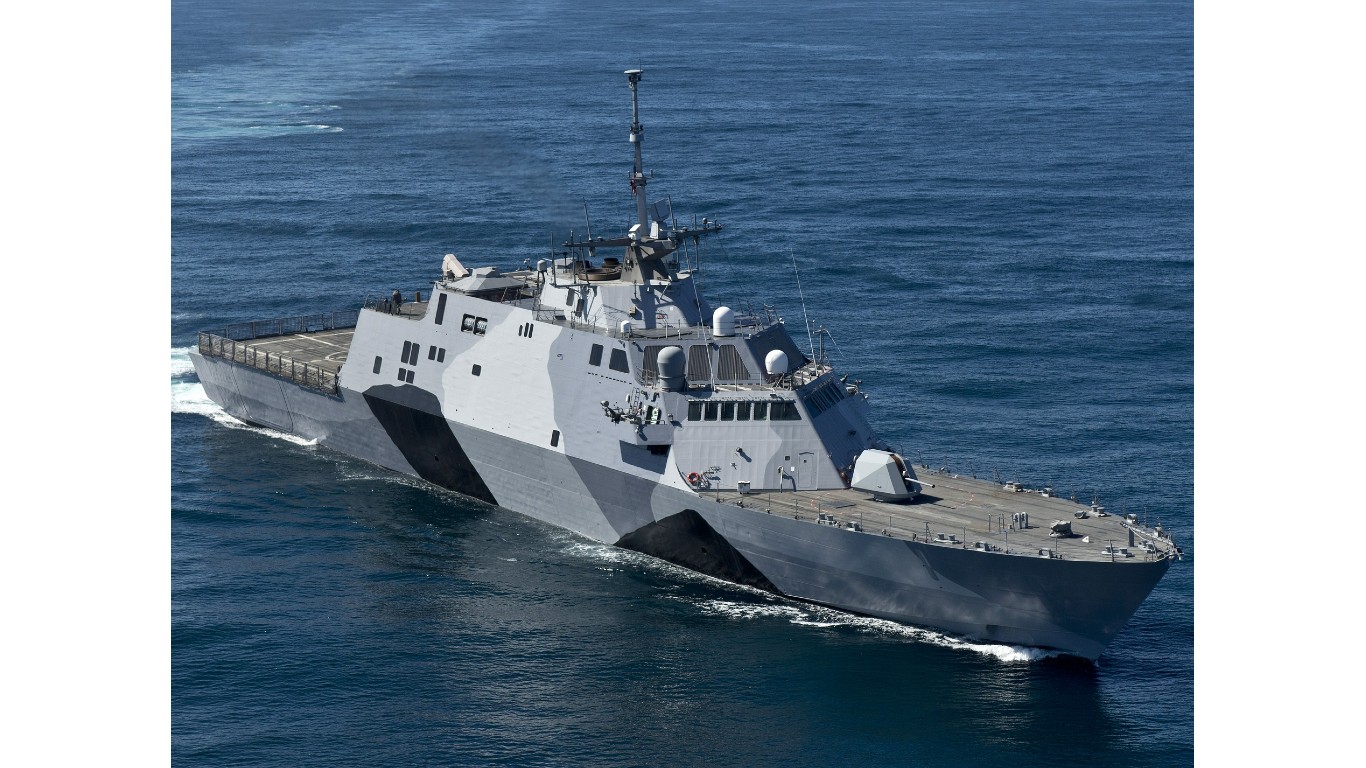
17. Freedom-class littoral combat ship
> Total displacement: 3,000 tons
> Dimensions: Length: 378.0 ft., Width: 57.3 ft., Draft: 12.7 ft.
> Number in US fleet: 9
> Crew: 125
> Year entered service: 1991
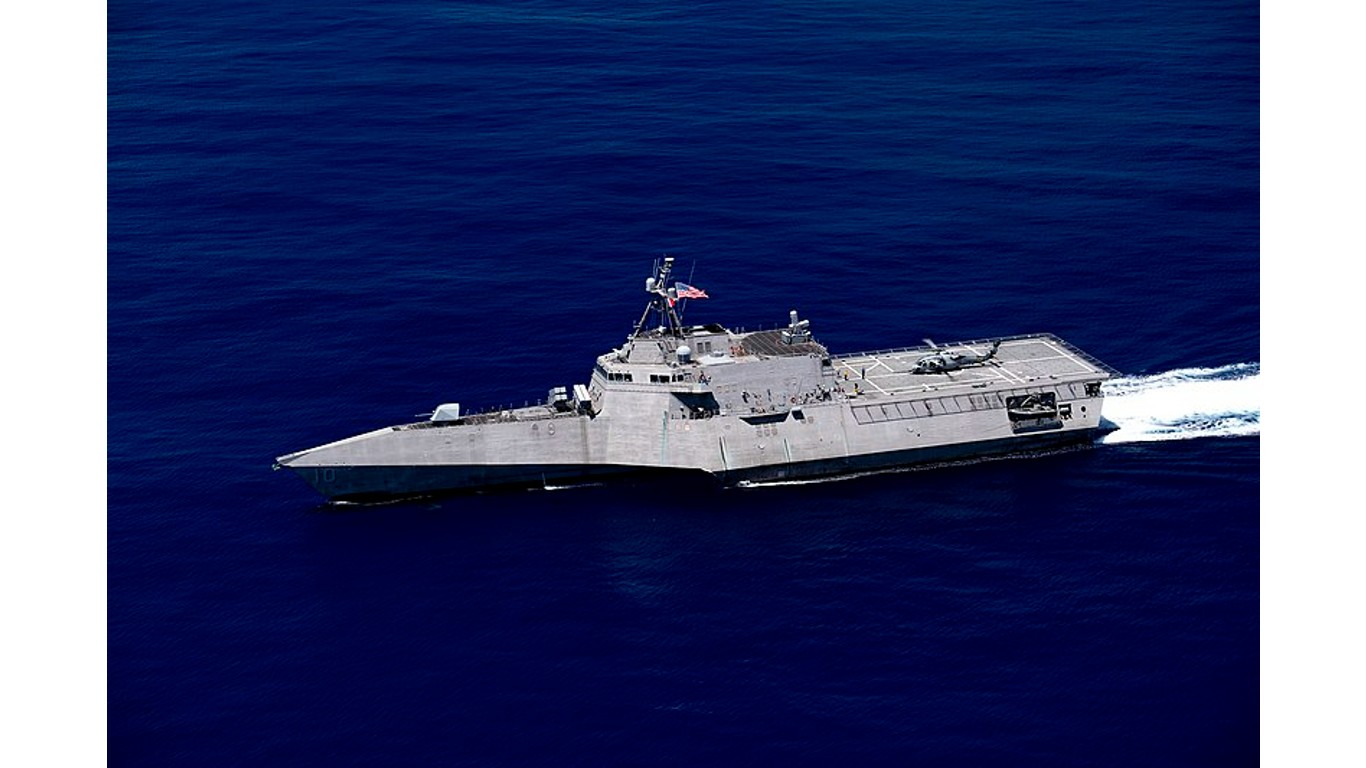
16. Independence-class corvette
> Total displacement: 3,300 tons
> Dimensions: Length: 418.0 ft., Width: 104.0 ft., Draft: 14.0 ft.
> Number in US fleet: 12
> Crew: 75
> Year entered service: 1976
[in-text-ad-2]
15. Los Angeles-class submarine
> Total displacement: 7,800 tons
> Dimensions: Length: 377.0 ft., Width: 34.0 ft., Draft: 32.0 ft.
> Number in US fleet: 28
> Crew: 134
> Year entered service: 2006
14. Virginia-class submarine
> Total displacement: Surface: 7,800 tons, Submerged: 8,700 tons
> Dimensions: Length: 377.0 ft., Width: 34.0 ft., Draft: 32.0 ft.
> Number in US fleet: 19
> Crew: 135
> Year entered service: 1987
[in-text-ad]
13. Seawolf-class submarine
> Total displacement: Surface: 8,600 tons, Submerged: 9,140
> Dimensions: Length: 353.0 ft., Width: 40.0 ft., Draft: 36.0 ft.
> Number in US fleet: 3
> Crew: 141
> Year entered service: 2004
12. Arleigh Burke-class guided missile destroyer
> Total displacement: 9,215 tons
> Dimensions: Length: 513.0 ft., Width: 66.0 ft., Draft: 30.5 ft.
> Number in US fleet: 68
> Crew: 380
> Year entered service: 2010
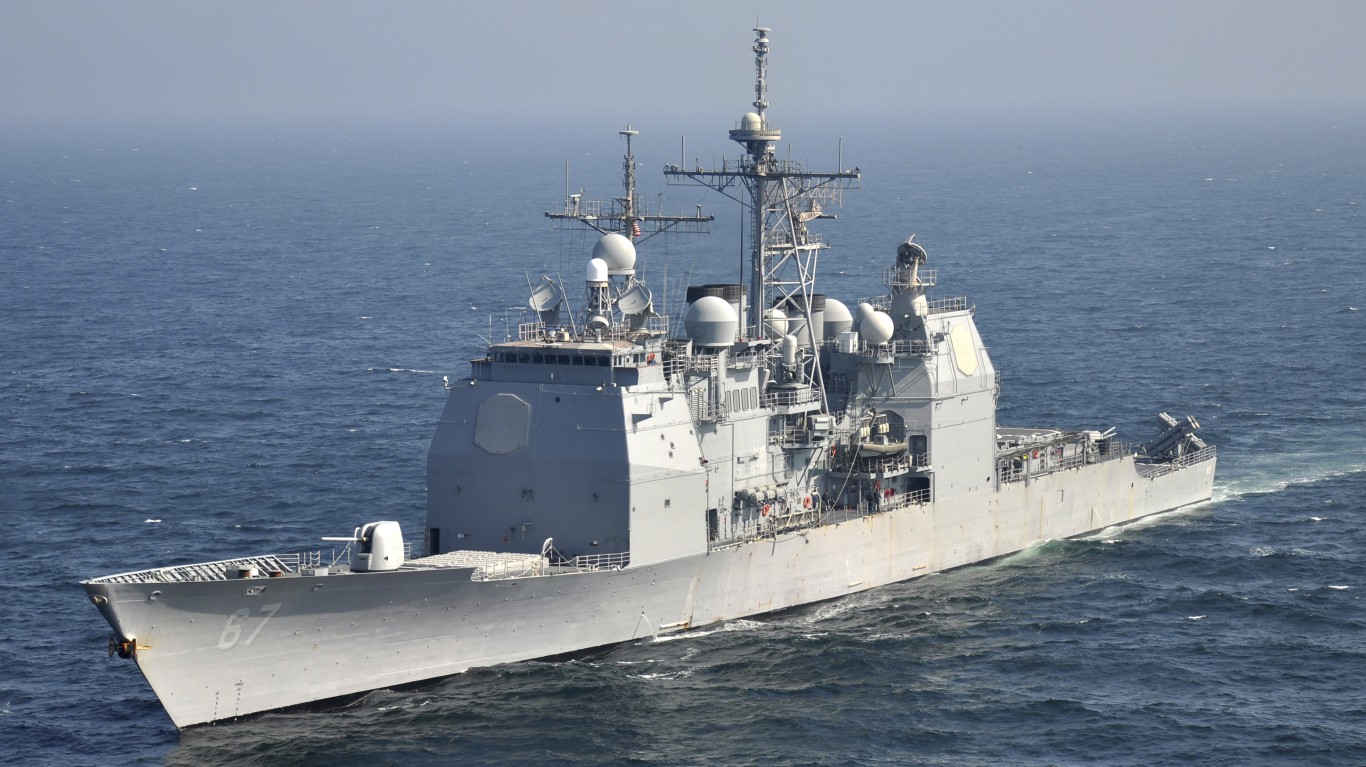
11. Ticonderoga-class cruiser
> Total displacement: 9,600 tons
> Dimensions: Length: 567.0 ft., Width: 55.0 ft., Draft: 33.0 ft.
> Number in US fleet: 22
> Crew: 330
> Year entered service: 1983
[in-text-ad-2]
10. Zumwalt-class guided missile destroyer
> Total displacement: 14,500 tons
> Dimensions: Length: 600.0 ft., Width: 81.0 ft., Draft: 28.0 ft.
> Number in US fleet: 2
> Crew: 140
> Year entered service: 1993
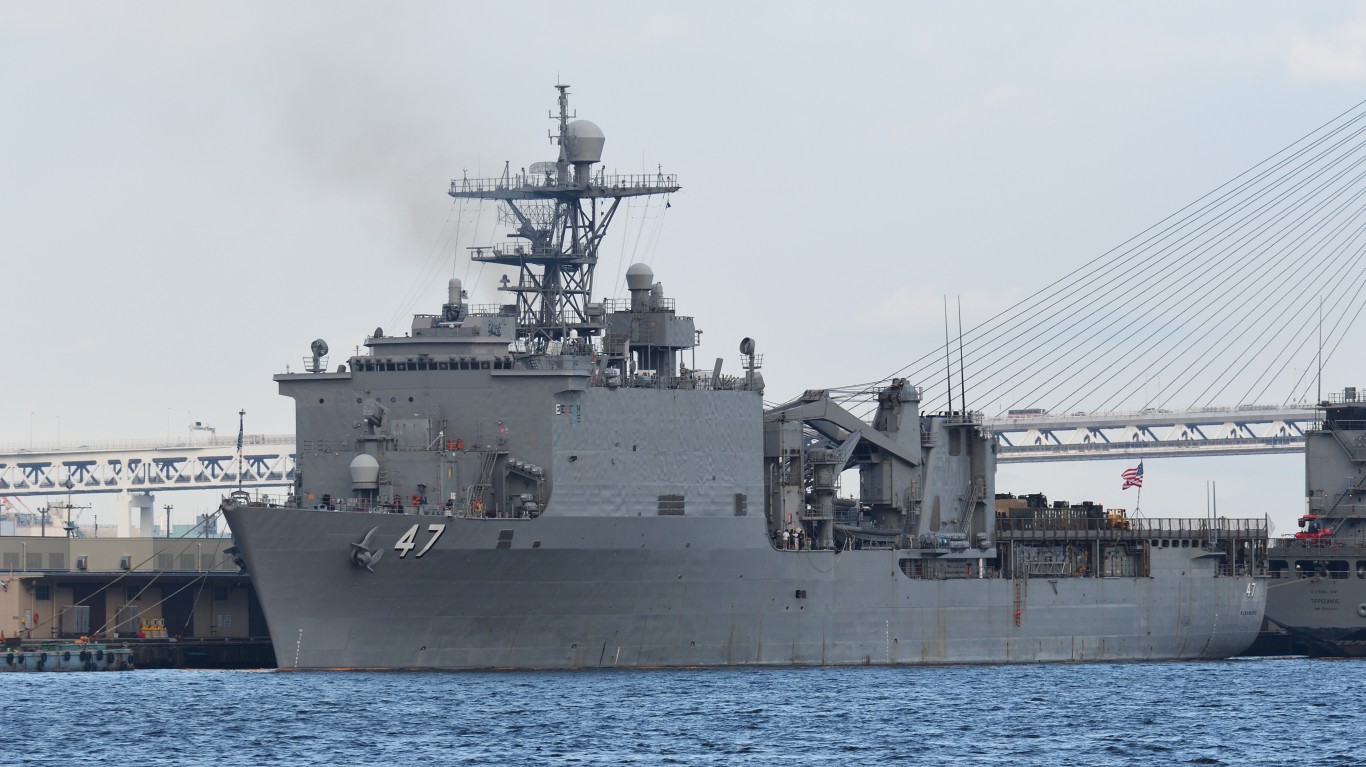
9. Whidbey Island-class dock landing ship
> Total displacement: 16,740 tons
> Dimensions: Length: 609.0 ft., Width: 84.0 ft., Draft: 20.7 ft.
> Number in US fleet: 7
> Crew: 413
> Year entered service: 1970
[in-text-ad]
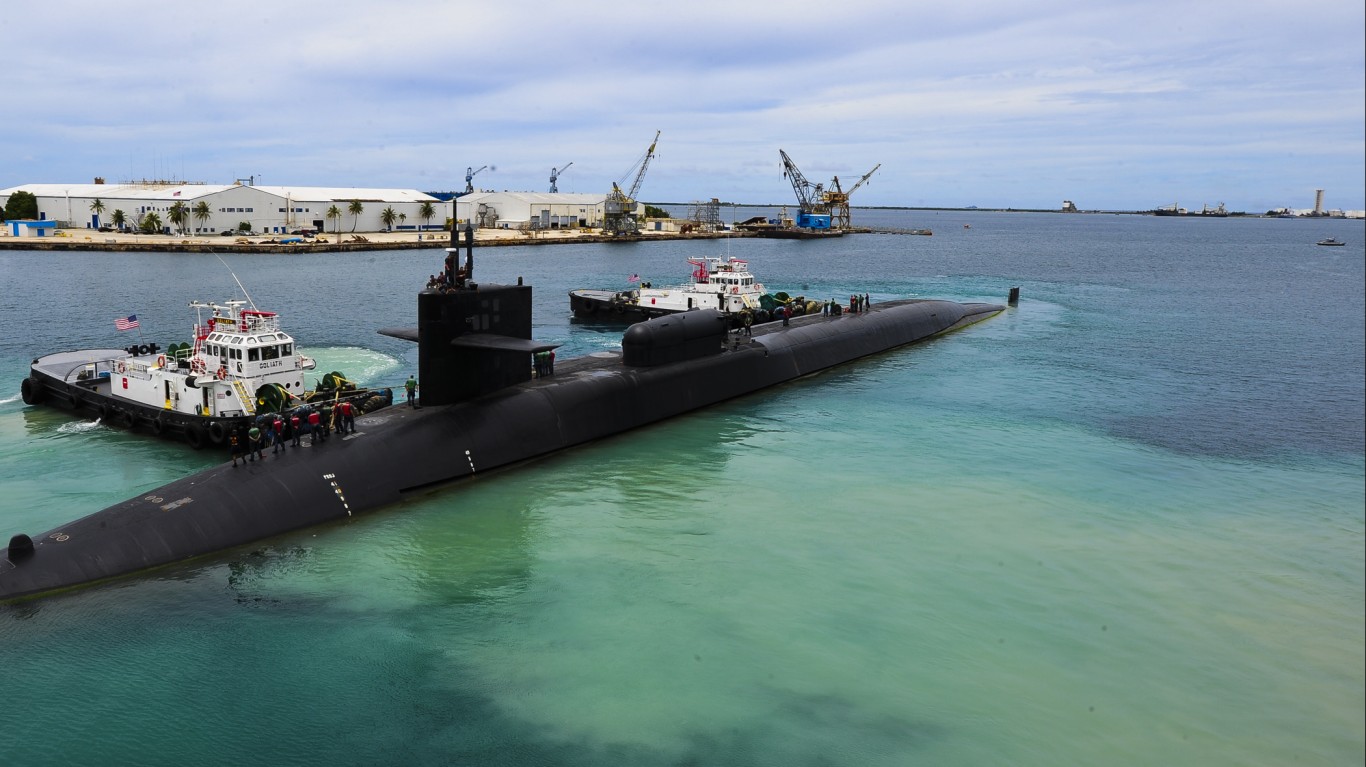
8. Ohio-class submarine
> Total displacement: Surface: 16,765 tons, Submerged: 18,750 tons
> Dimensions: Length: 560.0 ft., Width: 42.0 ft., Draft: 38.0 ft.
> Number in US fleet: 18
> Crew: 153
> Year entered service: 1985
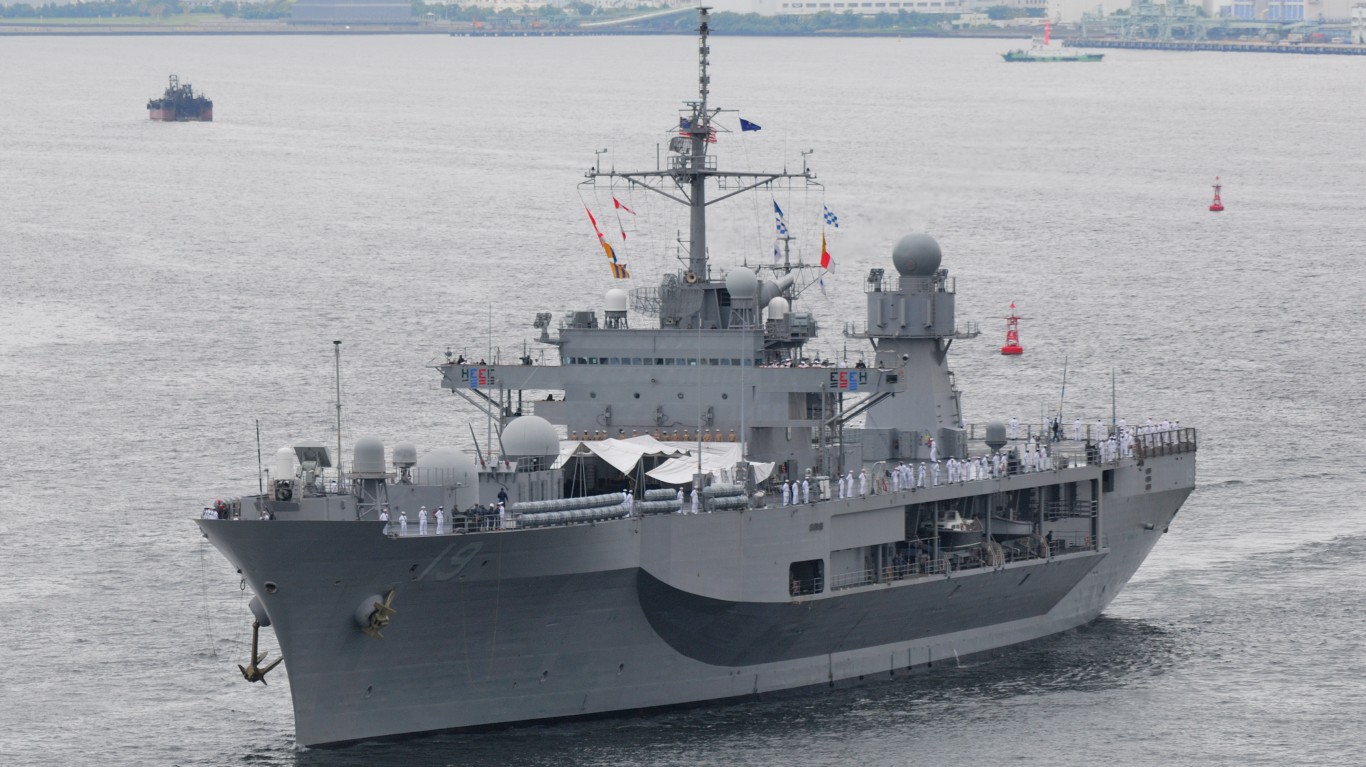
7. Blue Ridge-class command ship
> Total displacement: 18,875 tons
> Dimensions: Length: 635.0 ft., Width: 108.0 ft., Draft: 26.8 ft.
> Number in US fleet: 2
> Crew: 842
> Year entered service: 1997
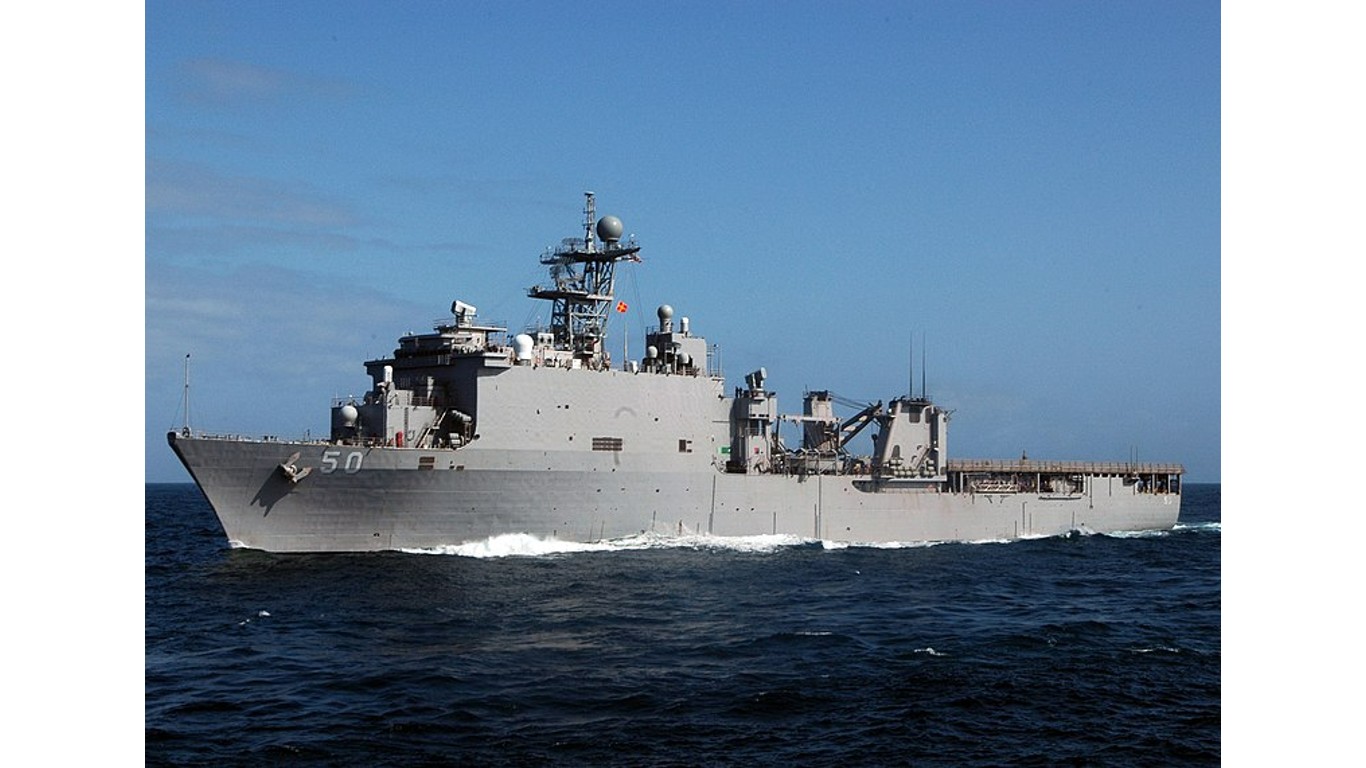
6. Harpers Ferry-class dock landing ship
> Total displacement: 19,600 tons
> Dimensions: Length: 609.6 ft., Width: 84.0 ft., Draft: 19.5 ft.
> Number in US fleet: 4
> Crew: 825
> Year entered service: 1989
[in-text-ad-2]
5. San Antonio-class amphibious transport dock
> Total displacement: 25,000 tons
> Dimensions: Length: 684.0 ft., Width: 105.0 ft., Draft: 23.0 ft.
> Number in US fleet: 11
> Crew: 361
> Year entered service: 2016
4. Wasp-class amphibious assault ship
> Total displacement: 41,182 tons
> Dimensions: Length: 844.0 ft., Width: 106.0 ft., Draft: 26.5 ft.
> Number in US fleet: 7
> Crew: 2,979
> Year entered service: 1995
[in-text-ad]
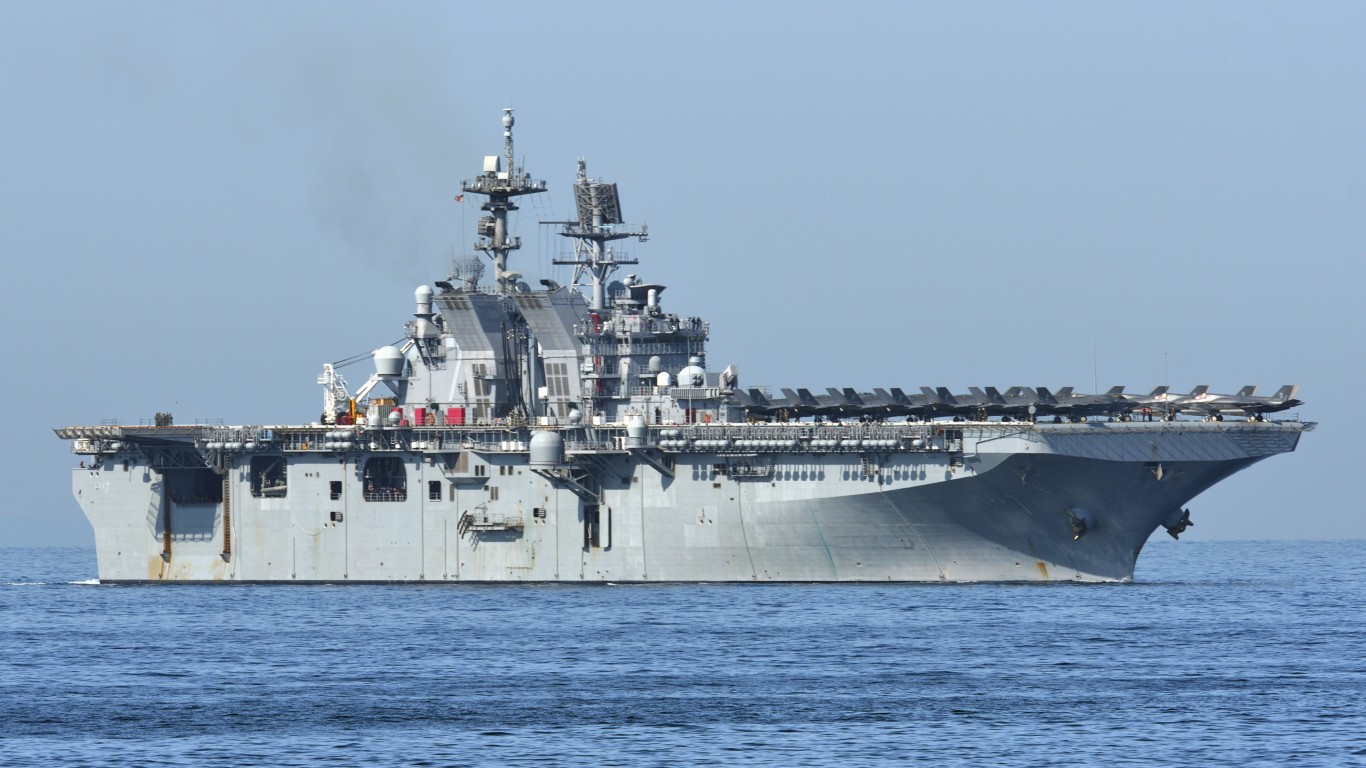
3. America-class amphibious assault ship
> Total displacement: 46,000 tons
> Dimensions: Length: 844.0 ft., Width: 106.0 ft., Draft: 26.0 ft.
> Number in US fleet: 2
> Crew: 2,745
> Year entered service: 2014
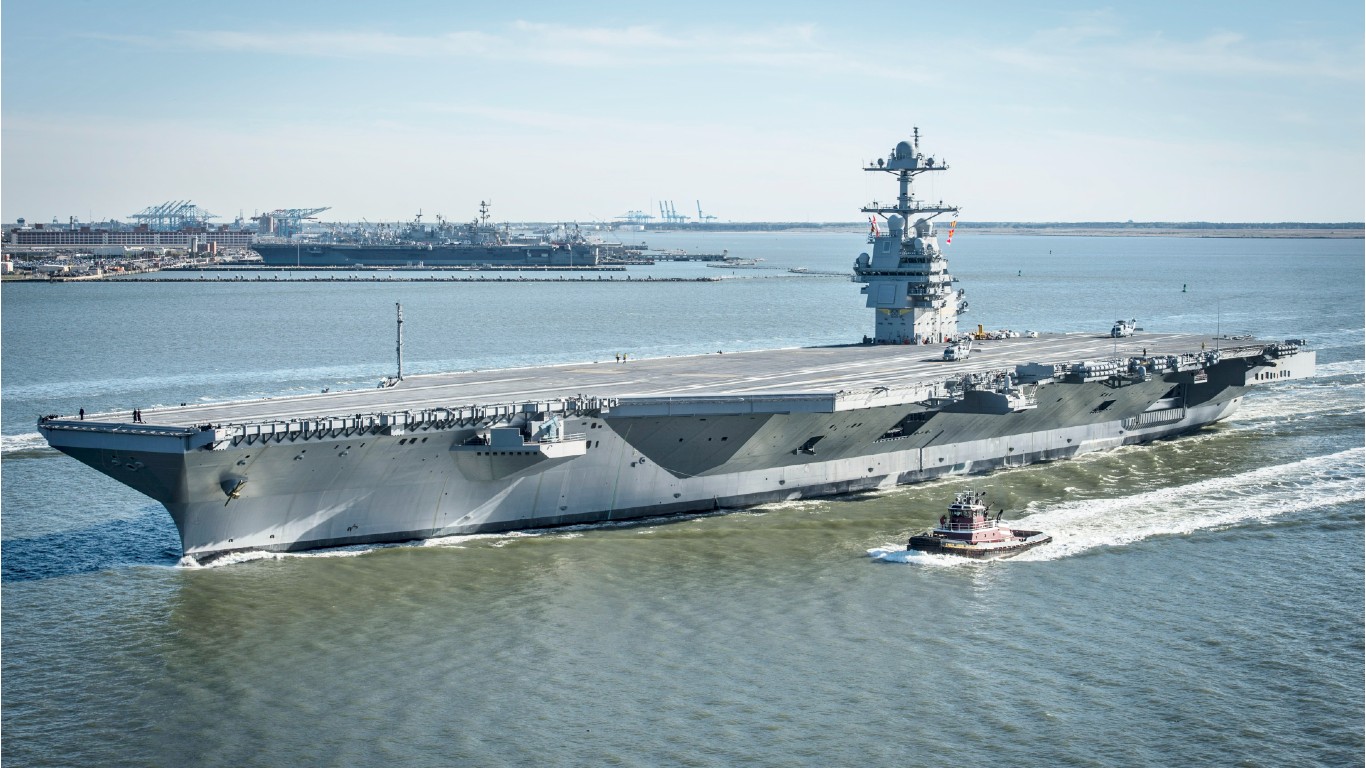
2. Ford-class aircraft carrier
> Total displacement: 112,000 tons
> Dimensions: Length: 1,106.0 ft., Width: 252.0 ft., Draft: 39.4 ft.
> Number in US fleet: 1
> Crew: 4,660
> Year entered service: 2008
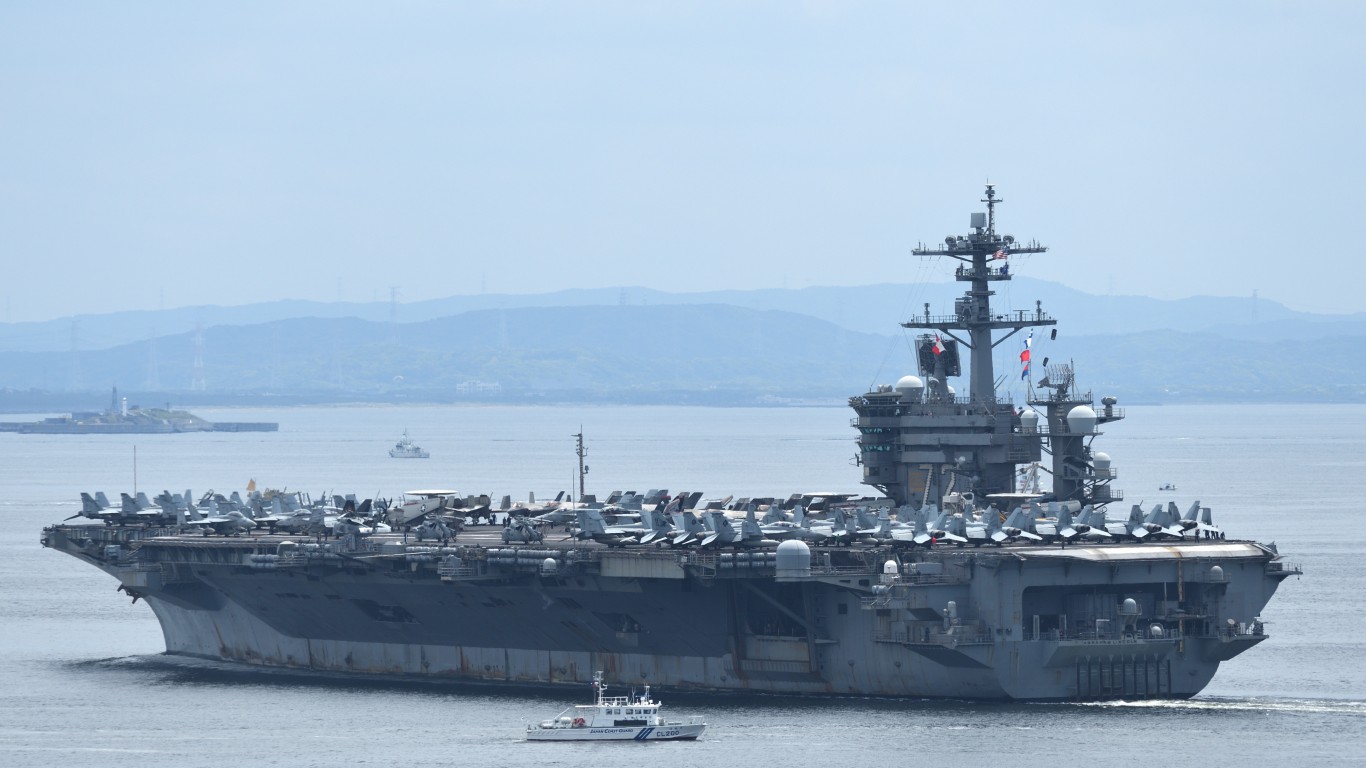
1. Nimitz-class aircraft carrier
> Total displacement: 114,000 tons
> Dimensions: Length: 1,092.0 ft., Width: 252.0 ft., Draft: 37.0 ft.
> Number in US fleet: 10
> Crew: 5,680
> Year entered service: 1975
Methodology
To determine the largest vessels in the U.S. Navy, 24/7 Wall St. reviewed a list of active U.S. naval vessel classes from Military Factory, an online database of military vehicles, aircraft, naval vessels, and more. We ranked the U.S. Navy’s ships according to their total displacement – the volume of water displaced by the vessel converted to weight in tons. Draft is the necessary depth of water a vessel needs – it is the vertical distance, in feet, between the waterline and the lowest point of the hull.
Data on the dimensions on each vessel, crew size, and the year each vessel entered service also came from Military Factory. From the World Directory of Modern Military Warships we added how many vessels are in service. For vessels that we could not find data on Military Factory, we turned to other comparable sources with the specifications for these vessels, including Military-Today.
Are You Ahead, or Behind on Retirement? (sponsor)
If you’re one of the over 4 Million Americans set to retire this year, you may want to pay attention. Many people have worked their whole lives preparing to retire without ever knowing the answer to the most important question: are you ahead, or behind on your retirement goals?
Don’t make the same mistake. It’s an easy question to answer. A quick conversation with a financial advisor can help you unpack your savings, spending, and goals for your money. With SmartAsset’s free tool, you can connect with vetted financial advisors in minutes.
Why wait? Click here to get started today!
Thank you for reading! Have some feedback for us?
Contact the 24/7 Wall St. editorial team.
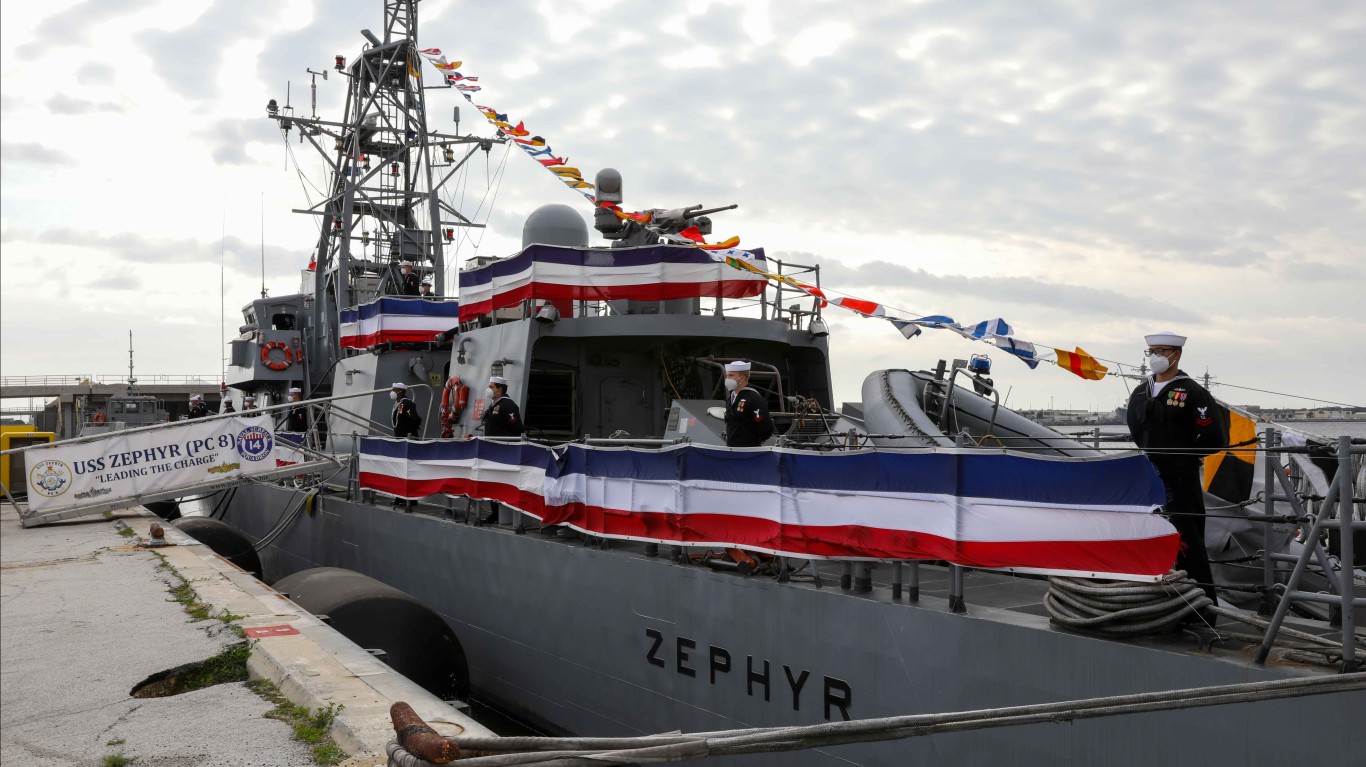
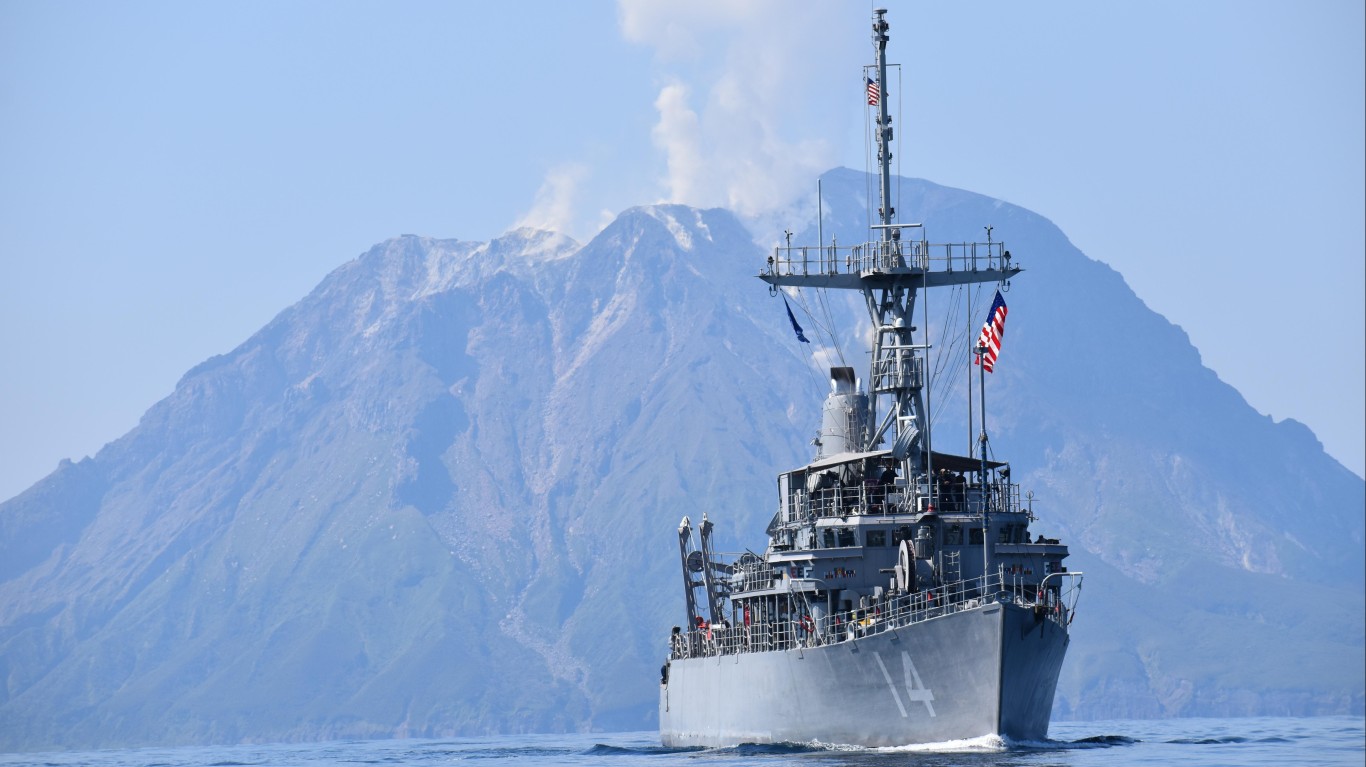
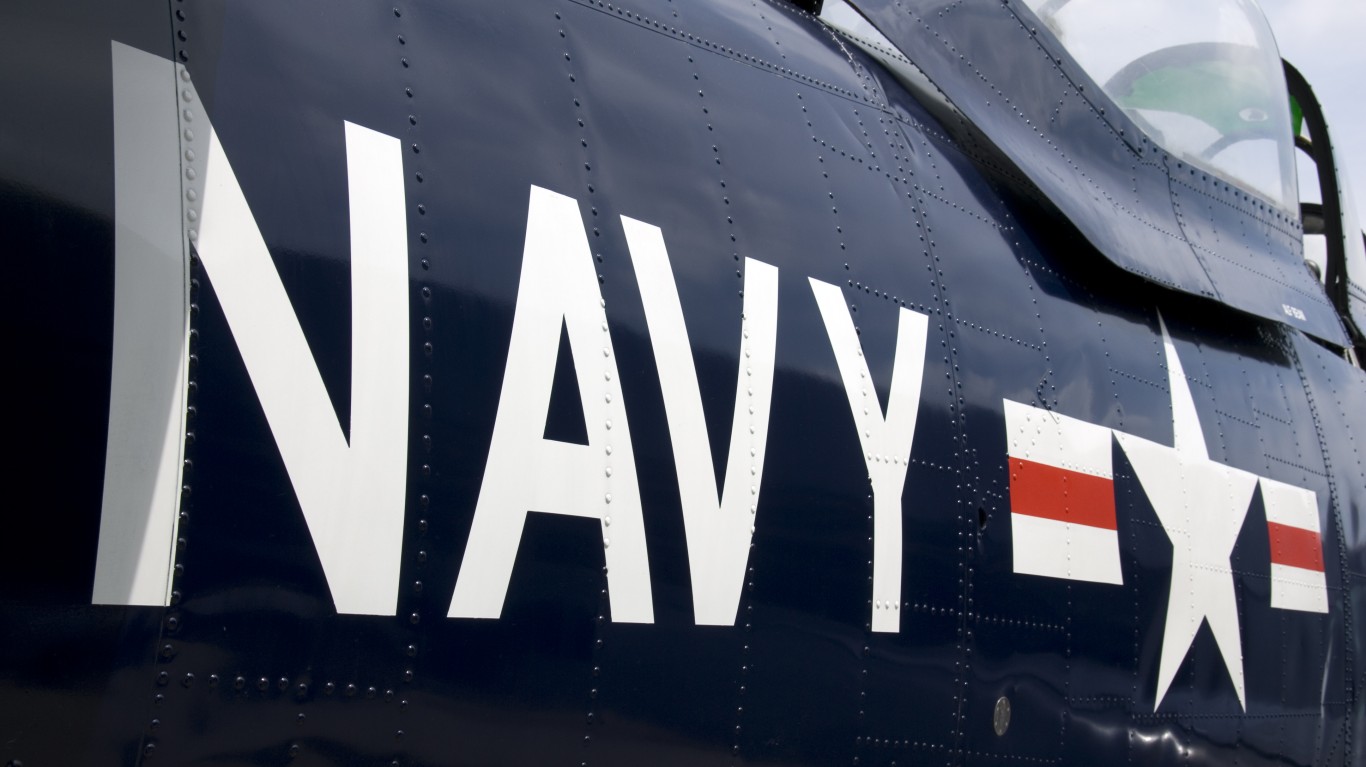 24/7 Wall St.
24/7 Wall St.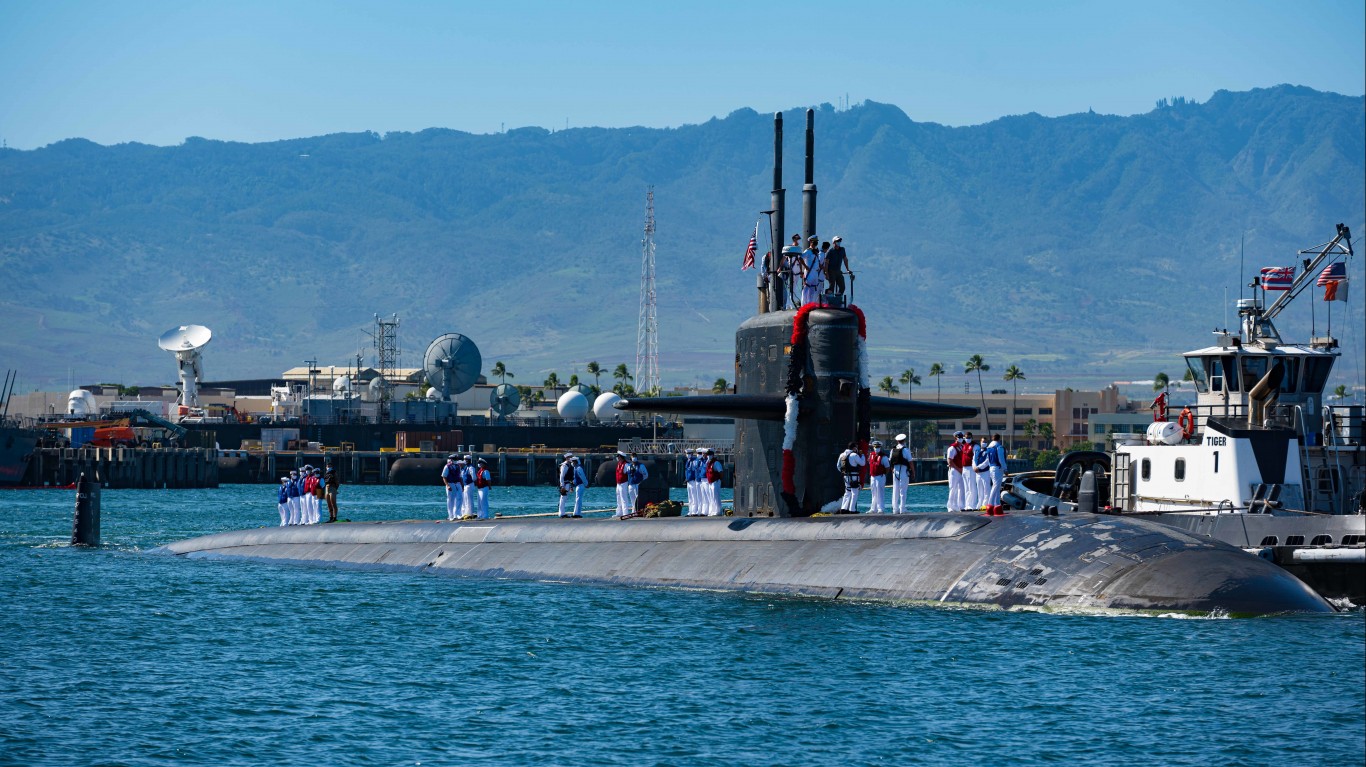
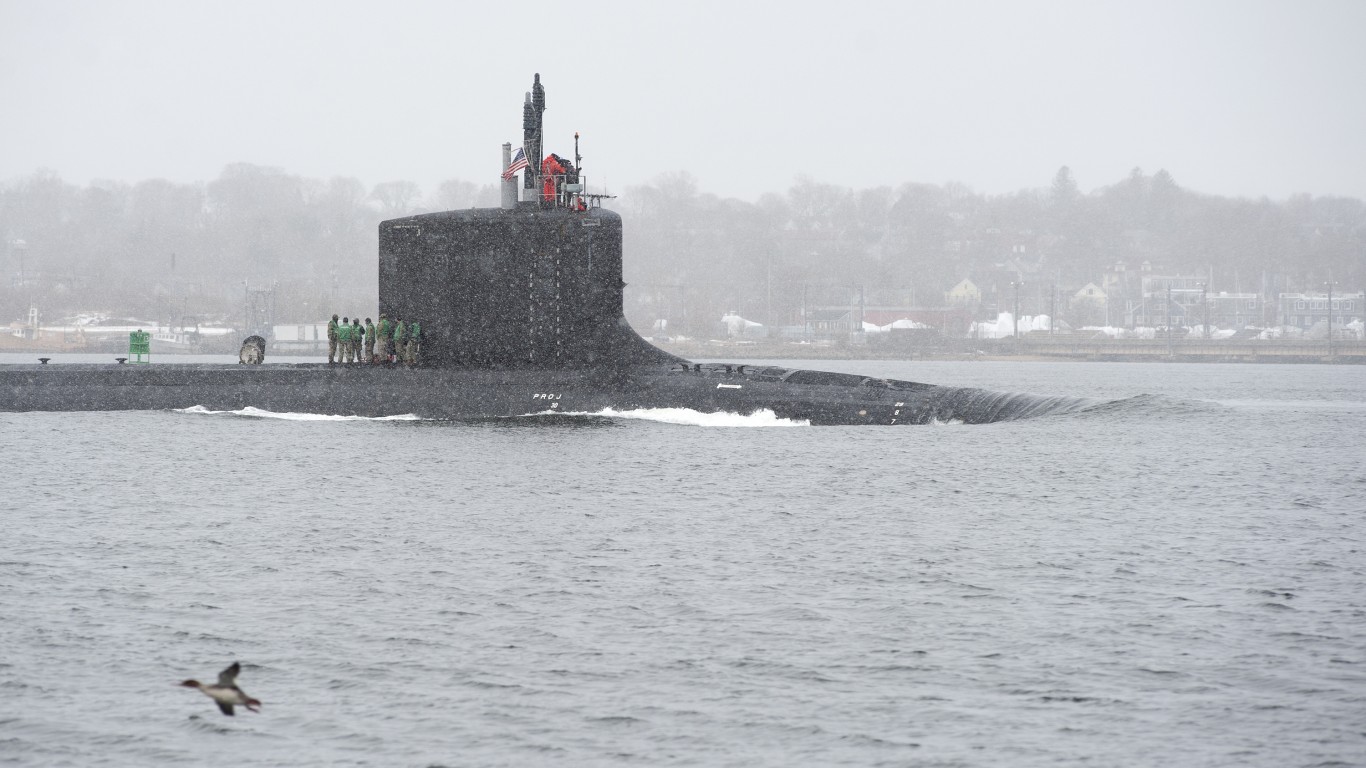

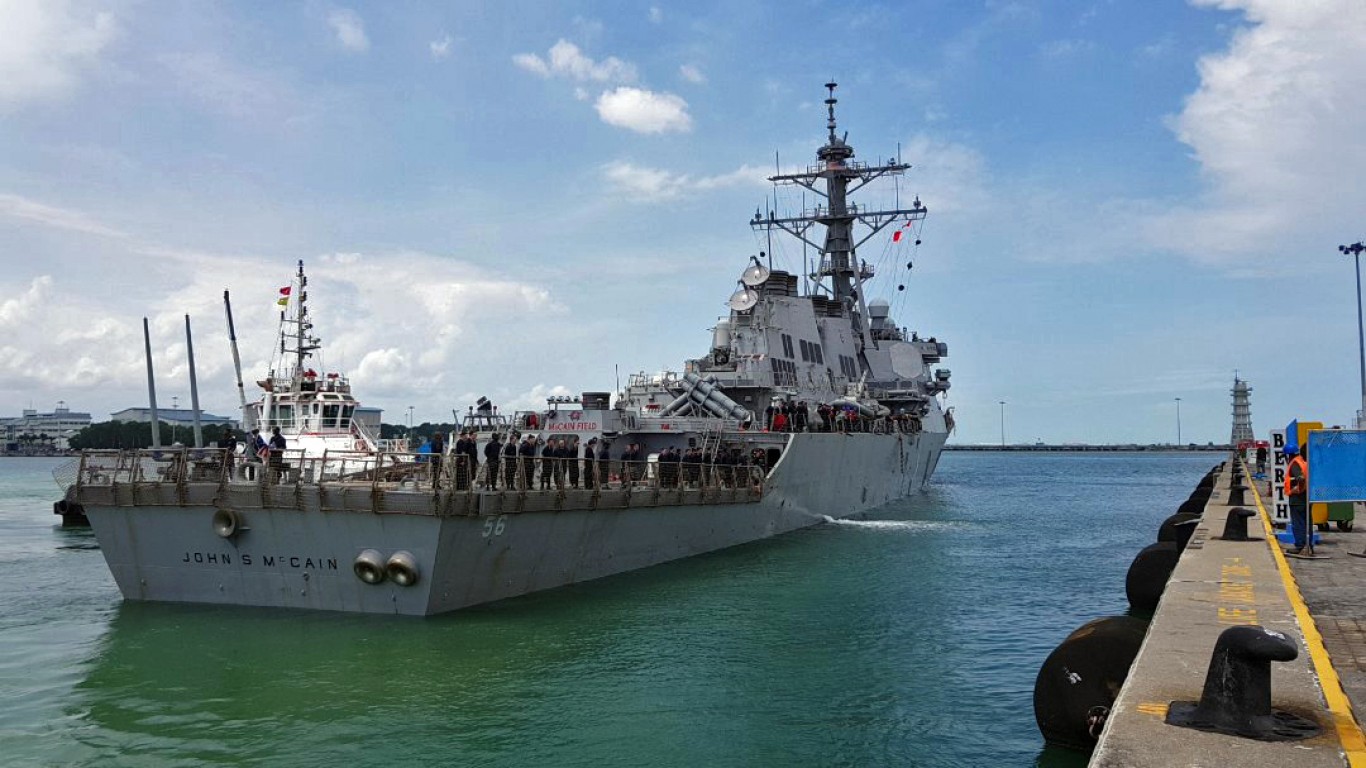 24/7 Wall St.
24/7 Wall St.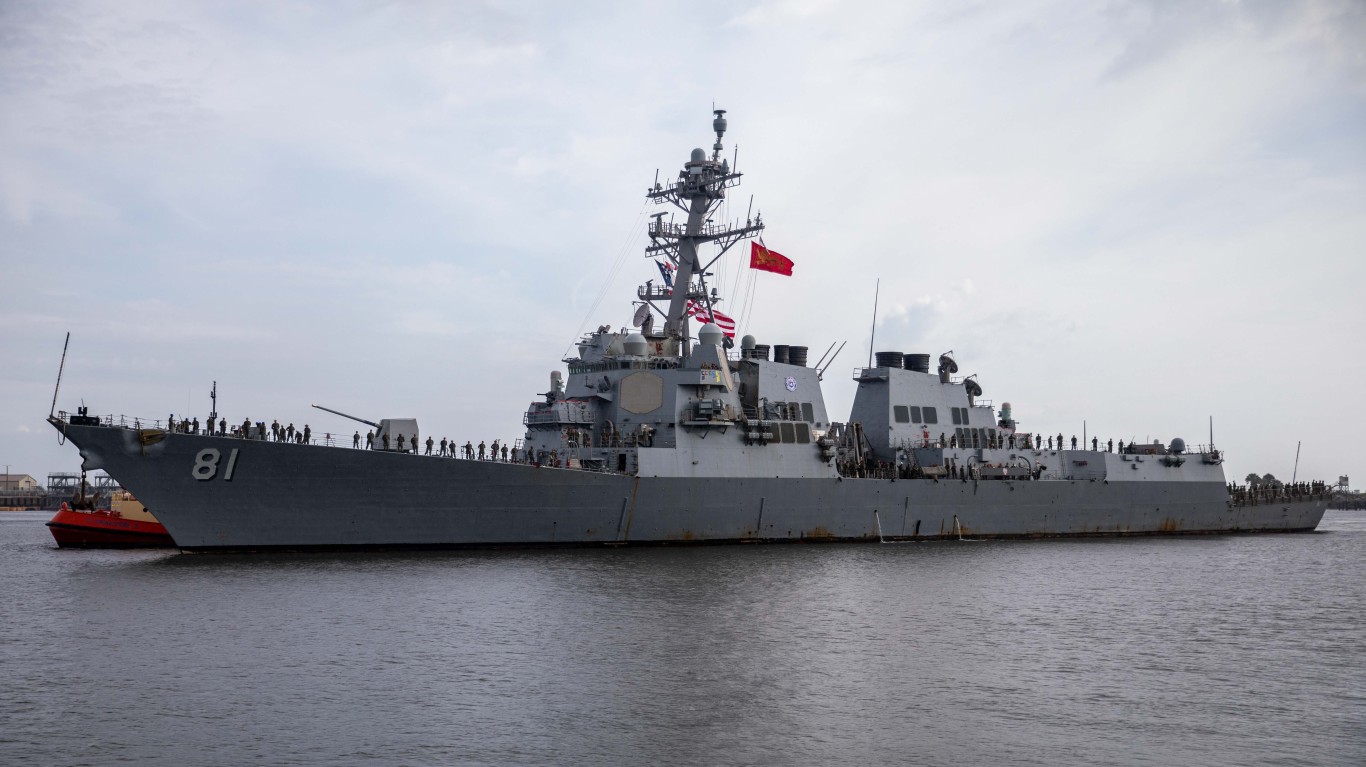
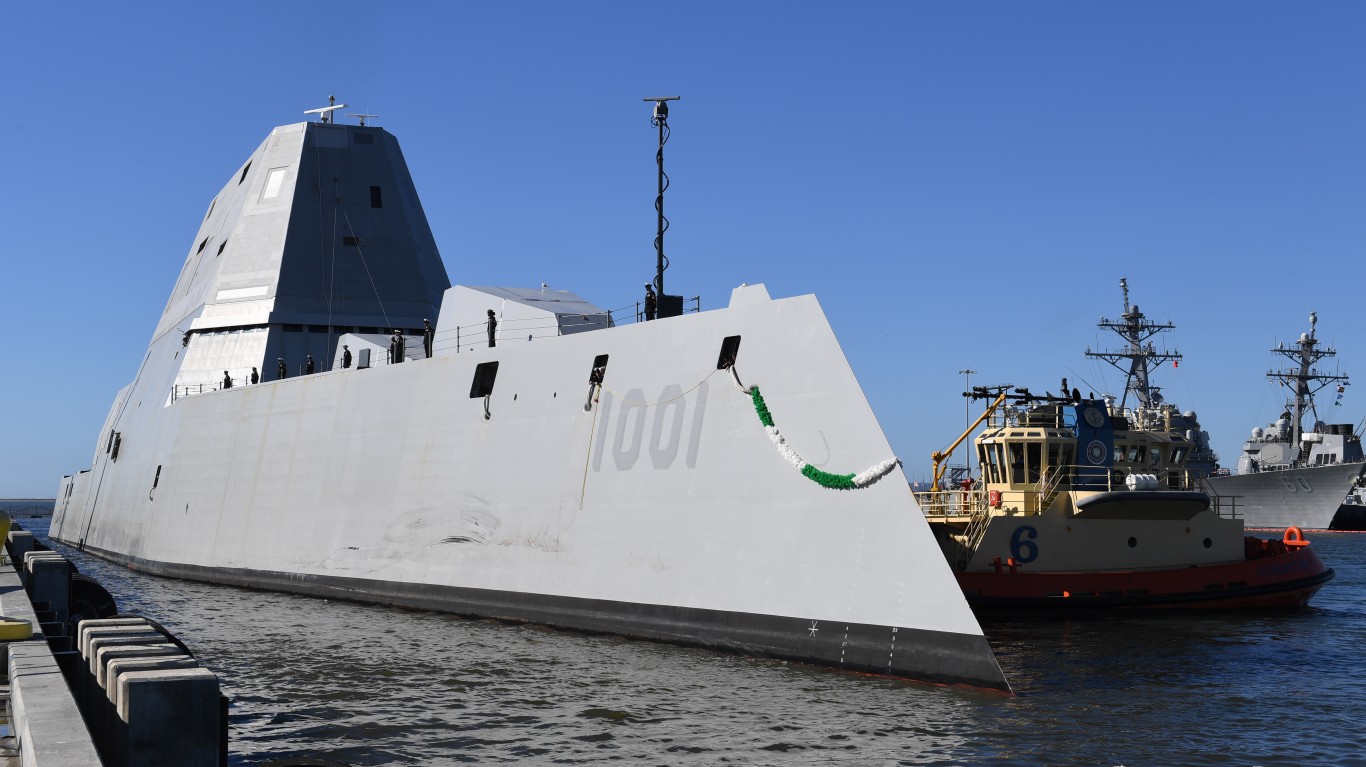
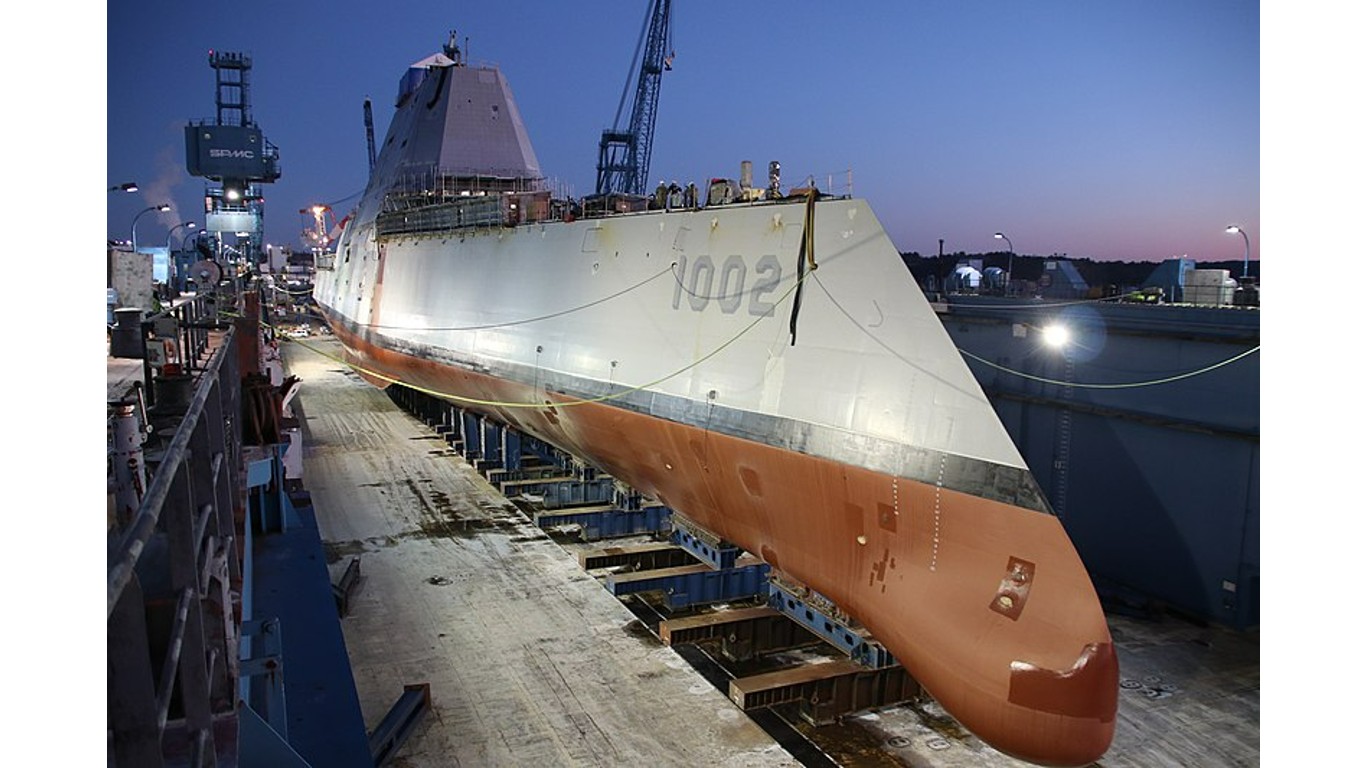 24/7 Wall St.
24/7 Wall St.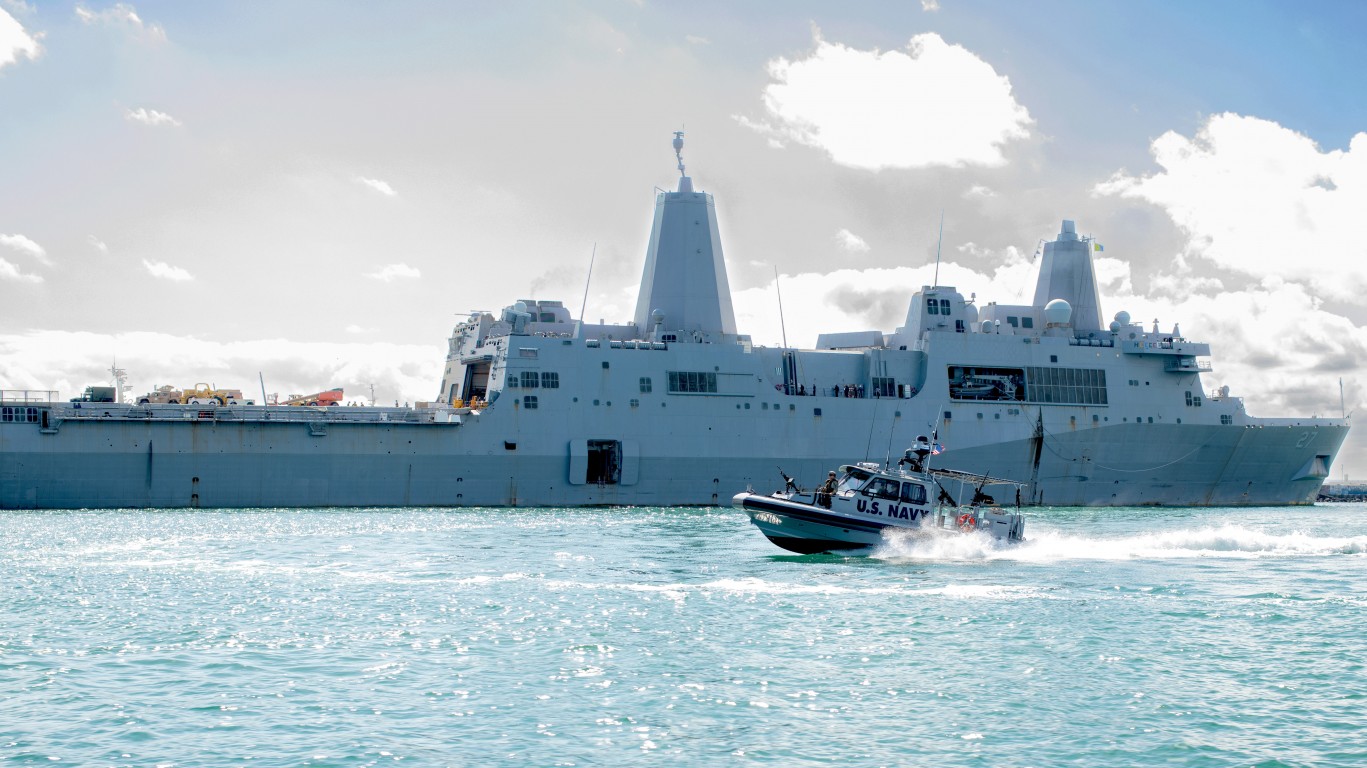
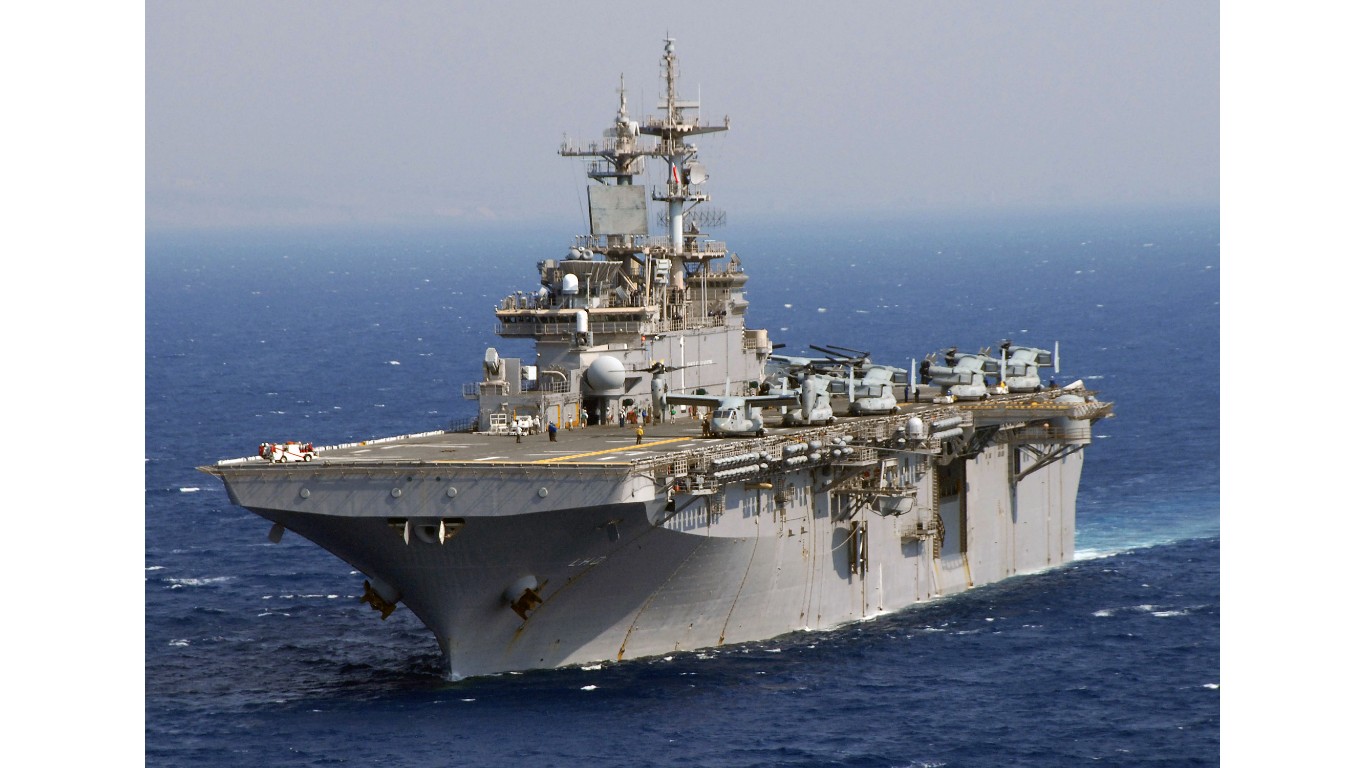
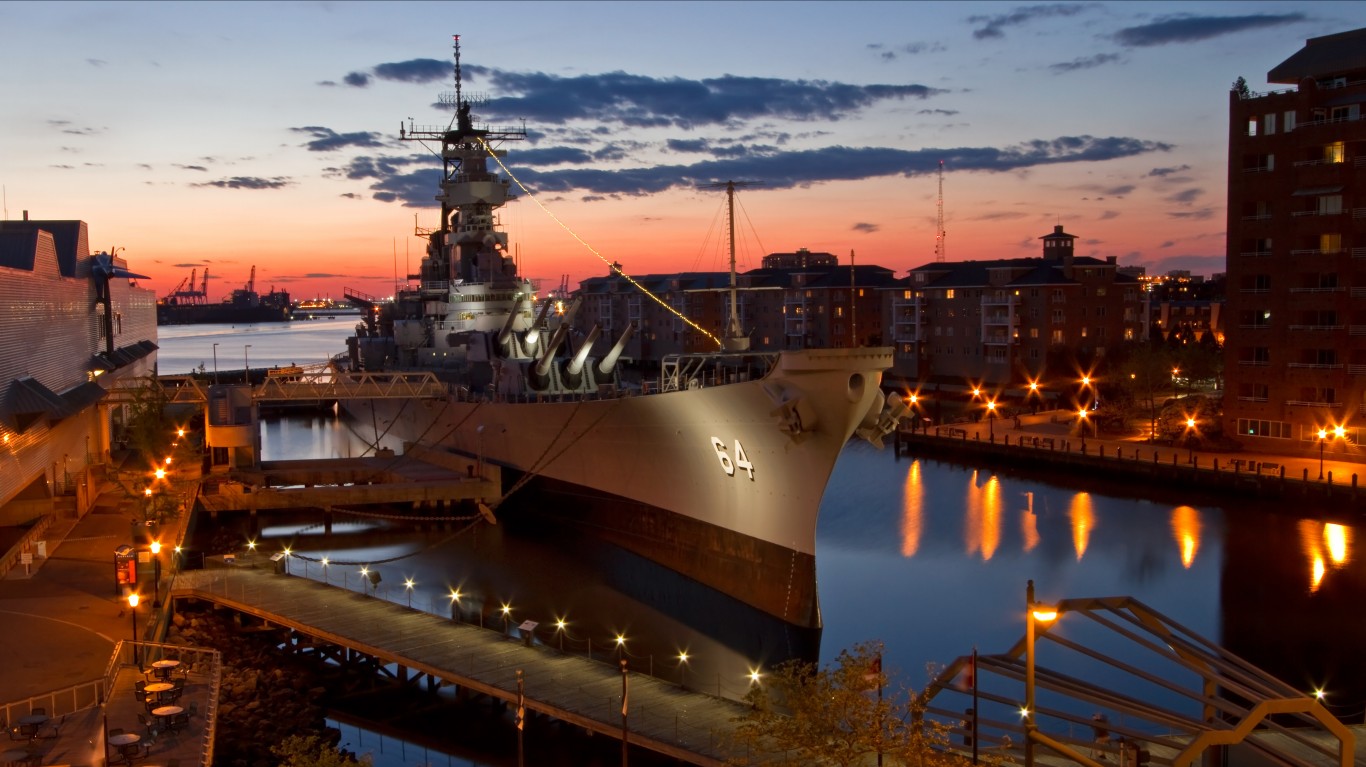 24/7 Wall St.
24/7 Wall St.
